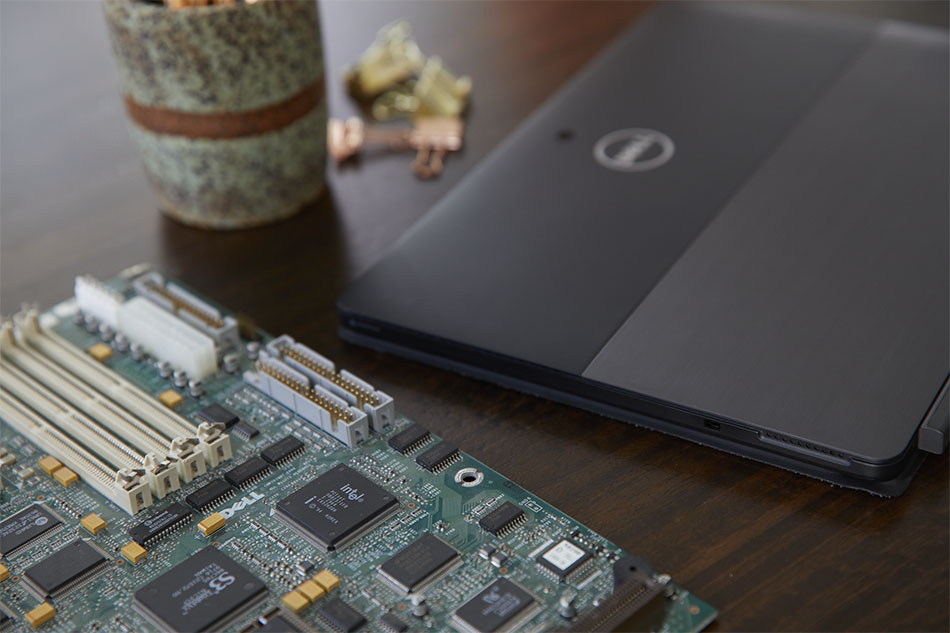
Dell’s 2019 sustainability report addressed several plastics-related points. | Courtesy of Dell
A global electronics company’s sustainability report provides a glimpse into its use of recycled resins, including e-plastics, post-consumer packaging and other sources.
Dell has used 100 million pounds of recovered materials in its products since 2014, and most of it has been recycled plastic, the company announced in a press release. The company met its goal of 100 million pounds during the first half of this year.
The following are major plastic-related takeaways from Dell’s recently released sustainability report:
Plastics from electronics: In 2018, Dell used 13.7 million pounds of e-plastics. Since the 2015 fiscal year, over 35 million pounds of e-plastics have been sent to molders to make components for 125 different desktop and monitor product models. The closed-loop e-plastics are blended with virgin resin at an average recycled content level of 30-35%, according to Dell.
Post-consumer packaging: Dell used 7.7 million pounds of post-consumer plastics sourced from packaging such as water bottles and CD cases last year. Since the 2014 fiscal year, the company has used 56.9 million pounds of these materials in hundreds of desktop and monitor models.
Ocean-bound plastics: Last year, Dell used over 18,000 pounds of HDPE that would otherwise be at risk of entering the sea. That was up from less than 4,000 pounds the year before. The company’s supply chain takes bottles from the environment in Haiti to China, where they’re molded into trays that hold Dell’s devices. The black trays are made of 25% ocean-bound HDPE and 75% post-consumer HDPE sourced through established collection programs. In 2018, the ocean-bound plastic went into 441,000 packaging trays.
Carbon fiber: In 2018, Dell used 636,000 pounds of reclaimed carbon fiber from the aerospace industry. Overall, Dell has used over 2 million pounds of carbon fiber, which is incorporated into the company’s laptop bases and backs.
Dell EMC challenges: No closed-loop resin was used in products belonging to Dell EMC, the company’s data management business. That was because of “challenges meeting the minimum shipping threshold to maintain low costs.” Nearly 11,000 pounds were used the year before.
Windshield plastics: Dell is using recovered polyvinyl butyral (PVB) from car windshields to create a protective, water-resistant coating on laptop bags and backpacks. The bags launched in February.